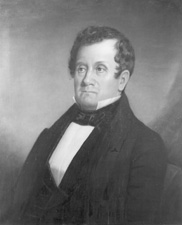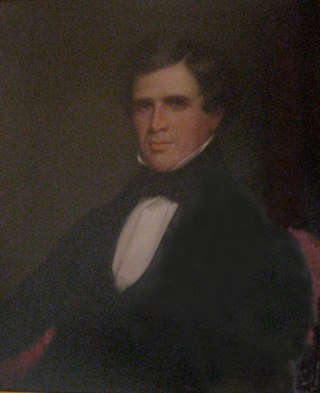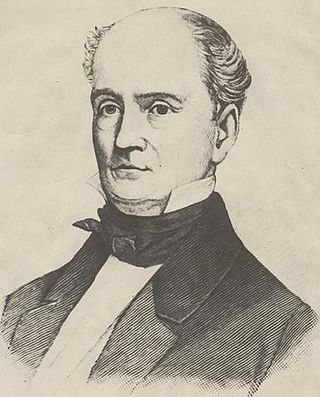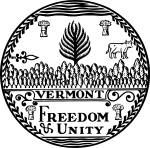
William Upham was an American attorney and politician from Montpelier, Vermont. He was most notable for his service as a United States senator from Vermont.

John Mattocks was an American Whig politician, a brigadier general in the War of 1812, U.S. Representative, and 16th governor of Vermont.

Peter Thacher Washburn was a Vermont lawyer, politician and soldier. A veteran of the American Civil War, he served as the 31st governor of Vermont as a Republican from 1869 to 1870, and was the second Vermont Governor to die in office.

The 1866 Vermont gubernatorial election took place on September 4, 1866. In keeping with the "Mountain Rule", Incumbent Republican Paul Dillingham was a candidate for a second one-year term as governor of Vermont. With the election taking place soon after the American Civil War, Dillingham ran as a pro-Union Republican. The Democratic nomination was won by Charles N. Davenport of Wilmington, an attorney and founder of the Brattleboro Reformer newspaper, who was also the Democratic nominee in 1865. In the general election, Dillingham was easily elected to a second one-year term as governor.

The 1854 Vermont gubernatorial election for governor of Vermont took place on September 5. The Whig nominee was Stephen Royce, former Chief Justice of the Vermont Supreme Court. The Democratic nominee was Merritt Clark, and Lawrence Brainerd ran as the nominee of the Free Soil Party even as he was one of the organizers of the new anti-slavery Republican Party and appeared as a Whig candidate for the Vermont Senate on the ballot in Franklin County. Whig William C. Kittredge was nominated for governor against his wishes by advocates of the Temperance movement and Democrat Horatio Needham also attracted the support of some Free Soil advocates.

The 1855 Vermont gubernatorial election for governor of Vermont was held on September 4. With the Whig Party defunct after 1854, incumbent Stephen Royce, who had run with the support of both Whigs and the new Republican Party in 1854, ran as the nominee of the Republicans. The Democratic candidate was Merritt Clark, who had run unsuccessfully against Royce in 1854. James M. Slade, the Clerk of the Vermont House of Representatives was the nominee of the Know Nothing Party, also called the American Party.

The 1862 New Hampshire gubernatorial election was held on March 11, 1862.

The 1857 New Hampshire gubernatorial election was held on March 10, 1857.

The 1839 New Hampshire gubernatorial election was held on March 12, 1839.

The 1835 Vermont gubernatorial election was held on September 1, 1835.

The 1836 Vermont gubernatorial election was held on September 6, 1836.

The 1837 Vermont gubernatorial election was held on September 5, 1837.

The 1838 Vermont gubernatorial election was held on September 4, 1838.

The 1840 Vermont gubernatorial election was held on September 1, 1840. Incumbent Whig Governor Silas H. Jennison defeated Democratic nominee Paul Dillingham with 59.58% of the vote.

The 1841 Vermont gubernatorial election was held on September 7, 1841.

The 1842 Vermont gubernatorial election was held on September 6, 1842.

The 1843 Vermont gubernatorial election was held on September 5, 1843.

The 1845 Vermont gubernatorial election was held on September 2, 1845.

Charles N. Davenport was an American attorney, businessman, and political candidate from Vermont. A Democrat during the American Civil War and post-war era when Republicans won every election for statewide office, Davenport was an unsuccessful candidate for offices including governor and U.S. representative. He was a delegate to many local, state, and county Democratic conventions, and was the founder of the Brattleboro Reformer newspaper.





















